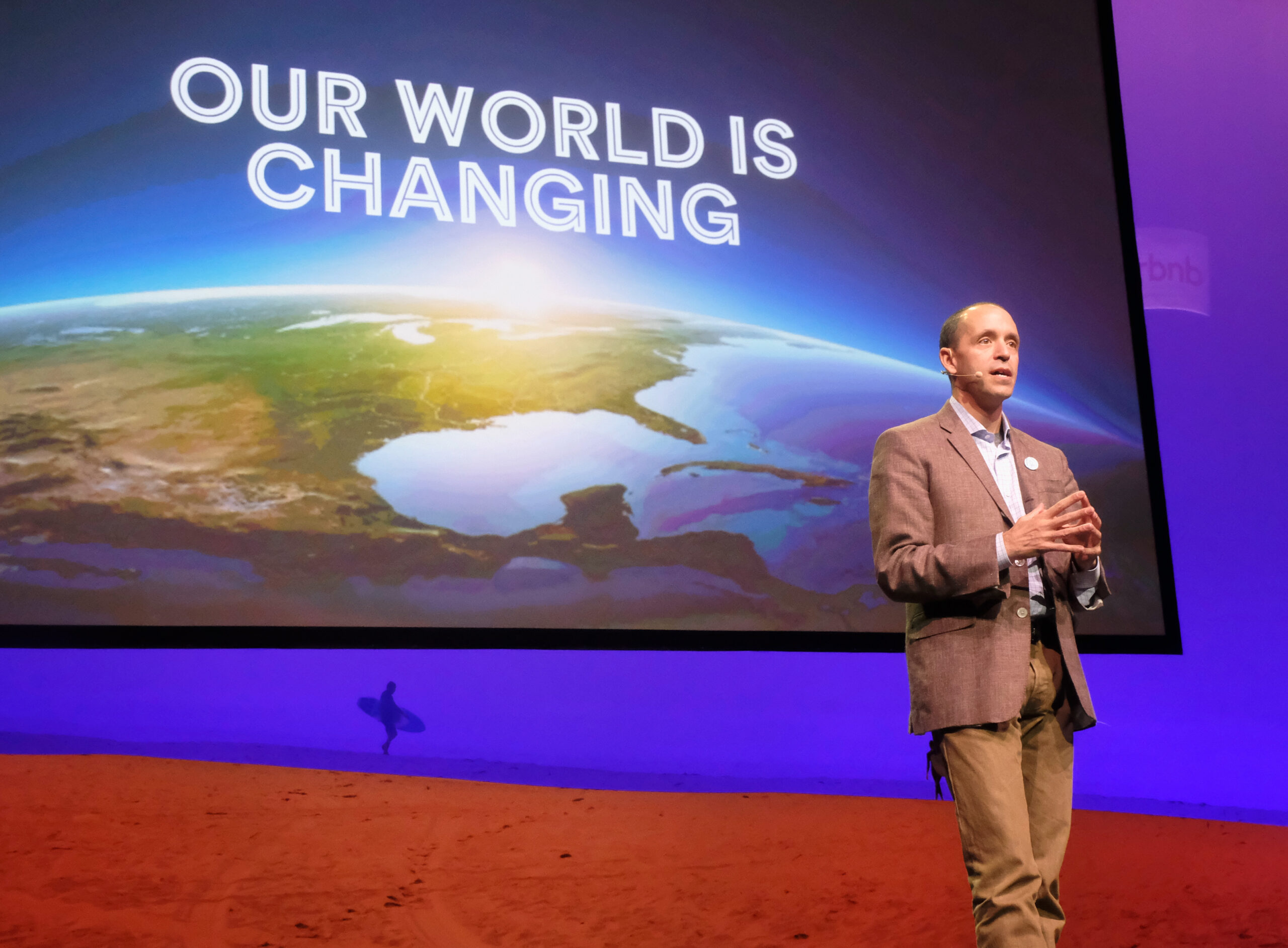'The Year of Living Anywhere': Airbnb SVP Chris Lehane Talks Family Trends and the Future of Business Travel

Key Takeaways
Families are still a key user demographic for Airbnb, over indexing on Monday and Tuesday nights, the busiest days for Airbnbs, according to Lehane.
The home-sharing company is working to build its offerings in the business travel space, and Lehane said to expect an announcement on that front soon.
The rise of the coronavirus delta variant may have put a damper on the return to business, but that didn’t stop Airbnb Inc. from posting record revenue in the third quarter. That growth is in part thanks to two main cohorts of travelers, according to Airbnb’s head of policy and communications: families and remote workers.
Family travel boomed for Airbnb during the first year of the pandemic, when the average demographic profile of a typical user shifted from a couple of millennials traveling to a big city to a family heading from an urban to a rural area, Chris Lehane, the company’s senior vice president for global policy and communications, told Morning Consult in May.
Six months later, Lehane said families are responsible for driving a key trend on the platform. Contrary to popular belief, Saturday and Sunday aren’t the busiest days for Airbnbs. Mondays and Tuesdays are.
Those nights over index with families, who are “able to take a two-day trip and extend it” if parents are still working remotely, as many are, Lehane said. Forty-five percent of trips booked on the platform now are for at least a week, according to Airbnb, up from 38 percent two years ago. From July to September, 1 in 5 stays were for at least a month.
Airbnb expects this trend to continue into 2022: Long-term stays, which Airbnb classifies as stays of 28 days or more, are the fastest-growing trip length on the platform, while family travel is the fastest-growing trip type, the company said, based on bookings for next year made as of the end of September.
“We saw this in the first month of the pandemic, and people are still using Airbnbs for longer-term stays,” Lehane said. “They were hacking the remote work system to figure it out back then, and now we’re also seeing a version of that around hybrid retreats and offsites.”
Before the summer, Lehane said Airbnb had discussed options for hosting business trips through the platform with various companies. Though many organizations pumped the brakes on return-to-office plans, Lehane told Morning Consult that Airbnb is still working to grab a share of the business trip market.
Lehane was otherwise tight-lipped on this front, but said to expect an announcement from the company about its business trip offerings soon.
Forty-six percent of Americans said they would currently feel safe traveling within the country for work, according to Morning Consult’s Return to Normal tracker on work and offices.
46% of Americans Feel Comfortable With Domestic Travel for Work
While business trips may become shorter or less frequent thanks to remote-meeting technology, business travel isn’t going away entirely, Lehane said. That presents an opportunity for Airbnb, which has touted its tech innovations and full-service homes to position itself as an attractive option for remote workers.
For instance, as part of its 2021 Winter Release, Airbnb announced a new tool that enables users to test and verify the speed of the Wi-Fi at the homes they’re renting before they arrive, giving them peace of mind that they’ll be able to work during their trips.
“If you believe that technology like Zoom is going to be here to stay and potentially get better, which I do, then almost by definition, you have to believe that business travel is going to change a bit, too,” Lehane said. “People are understanding that they can work from anywhere. We are seeing folks using Airbnb to do that.”
Also rolling out with the 2021 Winter Release is a translation engine that allows Airbnb hosts and guests to communicate regardless of language differences. Airbnb built the product internally, Lehane said, so that it didn’t have to “outsource translation services to other platforms that potentially sell your data.”
But Airbnb’s business model doesn’t work without hosts offering their homes for rent — and hosts won't do so if they don’t trust the platform. Renters, in turn, won’t book with Airbnb if they don’t trust their hosts, so maintaining these relationships is essential to the company’s continued growth going forward, according to Lehane.
“Our inherent business model is built on a social contract,” he said. “The business only grows if you’re constantly investing in building trust.”
Public comfort with home-sharing platforms such as Airbnb has been lower than comfort with classic hotels throughout the pandemic. But it recently reached a record high in mid-October, when 46 percent of Americans said they felt comfortable with home-sharing platforms. That number stayed relatively flat (and within the margin of error), at 44 percent, as of Morning Consult’s latest Return to Normal survey:
Comfort With Airbnbs Hovers Around Record High
Looking toward the future, Lehane emphasized the ongoing positive impact of remote and hybrid work on the entire travel industry. A recent survey from Deloitte found that 4 in 10 travelers will work to some extent while they’re on vacation this winter. And 75 percent of that cohort said they’re adding at least one day to their trip as a result of the ability to work remotely, while 57 percent said they’re adding at least three days to their longest leisure trip.
“I think about 2022 as the year of living anywhere,” he said. “Businesses that want to attract talent are going to have to have flexible work models in place. The future of work will have arrived, and some people will be spending their whole summers traveling while still working.”
Alyssa Meyers previously worked at Morning Consult as a reporter covering brands and marketing.